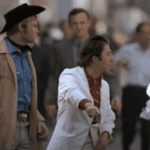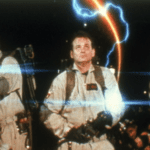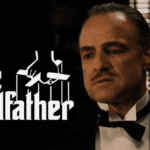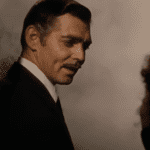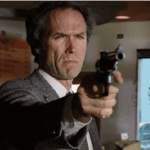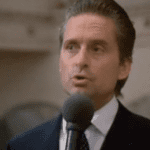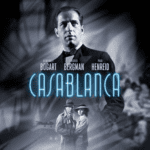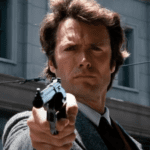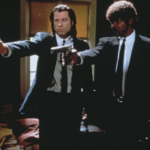A Few Good Men, a courtroom drama film, was released in 1992 and directed by Rob Reiner. The film is adapted from a play of the same name by Aaron Sorkin, who also penned the screenplay. It features a distinguished cast including Tom Cruise, Demi Moore, and Jack Nicholson, whose performances were pivotal in bringing the intense narrative to life. Set within the framework of a military court, the film explores complex issues such as duty, honor, and the pursuit of truth. From a famous quotes perspective the film has a few including the iconic “You Can’t Handle The Truth”
The plot centers around the murder of a young Marine, Santiago, stationed at Guantanamo Bay. As the story unfolds, two military lawyers, Lt. Daniel Kaffee (played by Tom Cruise) and Lt. Cmdr. JoAnne Galloway (played by Demi Moore), are assigned to defend the accused Marines, who are charged with Santiago’s murder. This case thrusts Kaffee, a somewhat inexperienced attorney, into a fierce legal battle against Col. Nathan R. Jessup, portrayed by Jack Nicholson. As the defense investigates, they uncover a web of secrets that leads to the pivotal courtroom confrontation that drives the film’s tension.
The intricate themes present in A Few Good Men reflect the moral dilemmas faced by those in military service, particularly regarding the concepts of loyalty and the darker aspects of command. The film delves deep into the values of honor and the sacrifices made in the name of national security. As the dramatic court hearings advance, the audience witnesses the clash between idealism and the harsh realities of military duty. This sets the stage for Nicholson’s iconic speech, which not only heightens the drama but also serves as a profound reflection on the nature of truth, especially within the confines of a military establishment.
The Setup of the Speech
In the film “A Few Good Men,” the courtroom serves as the primary battleground for the ideological conflict between the characters portrayed by Tom Cruise and Jack Nicholson. At the center of this tension is Colonel Nathan R. Jessup, played by Nicholson, who embodies the unwavering ethos of military loyalty and the complexities of command. Opposing him is Lieutenant Daniel Kaffee, played by Cruise, a defense attorney whose moral convictions and rules of engagement are rigorously tested throughout the narrative.
The trial revolves around the death of a young Marine under Jessup’s orders, with Kaffee seeking to uncover the truth behind the circumstances surrounding this tragic event. As the stakes escalate, the courtroom becomes a microcosm of larger themes such as integrity, honor, and the moral quandaries of military duty. The tension in this space is palpable, amplified by the contrasting personalities of the characters; Jessup’s stoic arrogance clashes sharply with Kaffee’s determination to reveal the uncomfortable realities of military orders.
The build-up to Nicholson’s iconic speech is marked by a series of exchanges that increasingly probe Jessup’s beliefs and justifications. Kaffee’s relentless questioning forces Jessup into a corner, challenging his perception of authority and control. This moment of confrontation not only serves to escalate the drama but also encapsulates the broader societal themes regarding the costs of blind loyalty to one’s superiors. As the courtroom drama intensifies, it becomes clear that the truth is not merely a pursuit for justice, but a battleground for conflicting ideals. The scene ultimately highlights the critical intersection of personal morality and institutional accountability and sets the stage for the explosive revelation that follows.
The Full Speech: ‘You Can’t Handle the Truth’
In the film “A Few Good Men,” Jack Nicholson delivers one of the most memorable speeches in cinematic history during a pivotal courtroom scene. His character, Colonel Nathan R. Jessup, is under scrutiny as he defends his controversial decisions regarding the conduct of his troops. The intensity of Nicholson’s performance becomes evident as he boldly declares, “You can’t handle the truth!” This phrase encapsulates the essence of the moral complexities presented in the film.
The speech highlights key lines that underscore the tension between truth and perception. Jessup asserts that the world is a harsh place and that individuals, like his interrogators, often cannot cope with its realities. He states, “We live in a world that has walls, and those walls have to be guarded by men with guns.” Here, Nicholson’s delivery is forceful, punctuating the necessity of strength and authority in maintaining order. His commanding presence demands attention, illustrating how power dynamics play out in both authority and accountability.
As he continues, the rhetoric shifts between aggression and vulnerability. Jessup’s insistence that, “You can’t handle the truth,” serves not only as a challenge to his accusers but also as a revelation of his own fears and justifications. It reveals a profound contradiction: Jessup believes that by upholding national security, he is acting in the best interest of his country, yet he is simultaneously complicit in actions that breach ethical boundaries. This duality is amplified by Nicholson’s fierce glare and authoritative tone, leaving the audience mesmerized by his passionate delivery.
Ultimately, Nicholson’s performance transcends mere acting; it is a profound exploration of truth, morality, and the human condition within the context of military duty. The speech serves as a lens through which viewers can dissect themes of justice, loyalty, and the weight of responsibility, making it a landmark moment in film history.
Jessep (Jack Nicholson): You want answers?
Kaffee (Tom Cruise): I think I’m entitled to them.
Jessep: You want answers?
Kaffee: I want the truth!
Jessep: You can’t handle the truth! Son, we live in a world that has walls. And those walls have to be guarded by men with guns. Who’s gonna do it? You? You, Lt. Weinberg? I have a greater responsibility than you can possibly fathom. You weep for Santiago and you curse the Marines. You have that luxury. You have the luxury of not knowing what I know: that Santiago’s death, while tragic, probably saved lives. And my existence, while grotesque and incomprehensible to you, saves lives…You don’t want the truth. Because deep down, in places you don’t talk about at parties, you want me on that wall. You need me on that wall.
We use words like honor, code, loyalty…we use these words as the backbone to a life spent defending something. You use ’em as a punchline. I have neither the time nor the inclination to explain myself to a man who rises and sleeps under the blanket of the very freedom I provide, then questions the manner in which I provide it! I’d rather you just said thank you and went on your way. Otherwise, I suggest you pick up a weapon and stand a post. Either way, I don’t give a damn what you think you’re entitled to!
Kaffee: Did you order the code red?
Jessep: (quietly) I did the job you sent me to do.
Kaffee: Did you order the code red?
Jessep: You’re goddamn right I did!!
Analysis and Impact of the Speech
The powerful speech delivered by Jack Nicholson’s character, Colonel Nathan R. Jessup, in “A Few Good Men” stands as a hallmark of cinematic dialogue. This iconic moment reflects profound themes of truth and morality, which serve as the nucleus of the narrative. The confrontation between Jessup and the protagonist, Lieutenant Daniel Kaffee, revolves around the stark realities of military justice and the ethical dilemmas faced by those in command. In essence, the speech encapsulates a struggle between moral imperatives and the harsh realities of duty, raising questions about what it means to serve and protect.
At its core, the speech signifies a clash between two opposing philosophies—one that seeks unwavering loyalty and the other that condemns blind obedience. Jessup’s assertion that “you can’t handle the truth” underlines the moral complexities inherent in authority and accountability. It challenges both the characters and the audience to confront uncomfortable truths about power dynamics within the military and beyond. This ideological confrontation has resonated with viewers, prompting discussions about justice, ethics, and personal responsibility since the film’s release in 1992.
The cultural impact of the speech extends far beyond its original context. Its famous lines have permeated popular media, becoming a reference point in discussions regarding truth and integrity in various fields. The phrase has been parodied and quoted in numerous other films, television shows, and a wide array of media, signifying its lasting influence on American culture. The speech remains a pivotal moment, emphasizing how dialogue can encapsulate larger societal themes. Through thorough analysis, it becomes evident that Nicholson’s performance not only underscores the significance of his character’s moral stance, but also engrains itself into the fabric of film history, serving as a timeless reflection on the complexities of human nature and authority.
More Movie Quotes To Inspire You
- Why So Serious? – The Dark Knight
 Introduction to The Dark Knight and The Joker Ever wondered why a movie quote haunts us even years after its release? The Dark Knight offers lines so impactful they’ve etched themselves into pop culture, with none more famous than the Joker’s taunting query, “Why so serious?” Introduction to this cinematic marvel is almost unnecessary, but… Read more: Why So Serious? – The Dark Knight
Introduction to The Dark Knight and The Joker Ever wondered why a movie quote haunts us even years after its release? The Dark Knight offers lines so impactful they’ve etched themselves into pop culture, with none more famous than the Joker’s taunting query, “Why so serious?” Introduction to this cinematic marvel is almost unnecessary, but… Read more: Why So Serious? – The Dark Knight - “I’m Walking Here, I’m Walking Here” – Midnight Cowboy
 Ever feel like the world might just run you over if you don’t stand your ground? Imagine navigating the chaotic streets of NYC in the ’60s. Sounds intense, right? Well, that’s exactly what happens in the iconic scene from Midnight Cowboy where Dustin Hoffman’s character boldly claims his turf with ‘I’m walking here!’ What’s even… Read more: “I’m Walking Here, I’m Walking Here” – Midnight Cowboy
Ever feel like the world might just run you over if you don’t stand your ground? Imagine navigating the chaotic streets of NYC in the ’60s. Sounds intense, right? Well, that’s exactly what happens in the iconic scene from Midnight Cowboy where Dustin Hoffman’s character boldly claims his turf with ‘I’m walking here!’ What’s even… Read more: “I’m Walking Here, I’m Walking Here” – Midnight Cowboy - “I Love the Smell of Napalm in the Morning” – Apocalypse Now
 Imagine waking up at dawn, surrounded by thick jungle, the air heavy with tension. Then, boom! The unmistakable scent of sweeping devastation—napalm. It’s chaotic, surreal, and strangely, some say it’s beautiful. Sounds wild, right? That’s war in Apocalypse Now, friends. Ready to dive into the psyche behind one of cinema’s most enduring lines? It’s more… Read more: “I Love the Smell of Napalm in the Morning” – Apocalypse Now
Imagine waking up at dawn, surrounded by thick jungle, the air heavy with tension. Then, boom! The unmistakable scent of sweeping devastation—napalm. It’s chaotic, surreal, and strangely, some say it’s beautiful. Sounds wild, right? That’s war in Apocalypse Now, friends. Ready to dive into the psyche behind one of cinema’s most enduring lines? It’s more… Read more: “I Love the Smell of Napalm in the Morning” – Apocalypse Now - May The Force Be With You – Star Wars
 “May the Force Be With You” – An Iconic Star Wars Quote One of the most recognizable phrases in cinema history, “May the Force be with you,” has become synonymous with the Star Wars franchise. This simple yet powerful line encapsulates the essence of hope, guidance, and the struggle between good and evil. Recognised by The American Film Institute… Read more: May The Force Be With You – Star Wars
“May the Force Be With You” – An Iconic Star Wars Quote One of the most recognizable phrases in cinema history, “May the Force be with you,” has become synonymous with the Star Wars franchise. This simple yet powerful line encapsulates the essence of hope, guidance, and the struggle between good and evil. Recognised by The American Film Institute… Read more: May The Force Be With You – Star Wars - You Talkin’ To Me? – Taxi Driver – Robert De Niro
 Think you know movie quotes? Hold on tight because “You talkin’ to me?” might just be the most enigmatic of them all. Dive into a world where one phrase encapsulates societal angst and alienation with gripping intensity. Travis Bickle, played by the legendary Robert De Niro, interrogates not just his surroundings but his very existence.… Read more: You Talkin’ To Me? – Taxi Driver – Robert De Niro
Think you know movie quotes? Hold on tight because “You talkin’ to me?” might just be the most enigmatic of them all. Dive into a world where one phrase encapsulates societal angst and alienation with gripping intensity. Travis Bickle, played by the legendary Robert De Niro, interrogates not just his surroundings but his very existence.… Read more: You Talkin’ To Me? – Taxi Driver – Robert De Niro - “These Are Not the Droids You Are Looking For” – A Star Wars Quote
 Few movie quotes have transcended time and become as iconic as Obi-Wan Kenobi’s famous line, “These are not the droids you are looking for.” This phrase, uttered in Star Wars: Episode IV – A New Hope (1977), has cemented itself in pop culture history. Beyond its significance in the movie, the line has evolved into a metaphor for persuasion,… Read more: “These Are Not the Droids You Are Looking For” – A Star Wars Quote
Few movie quotes have transcended time and become as iconic as Obi-Wan Kenobi’s famous line, “These are not the droids you are looking for.” This phrase, uttered in Star Wars: Episode IV – A New Hope (1977), has cemented itself in pop culture history. Beyond its significance in the movie, the line has evolved into a metaphor for persuasion,… Read more: “These Are Not the Droids You Are Looking For” – A Star Wars Quote - Don’t Cross The Streams – Ghostbusters
 In the pantheon of movie quotes that have wormed their way into our collective consciousness, few have the staying power of “Don’t Cross The Streams” from the 1984 supernatural comedy classic, Ghostbusters. This seemingly innocuous phrase, uttered with deadpan seriousness by Harold Ramis’s Dr. Egon Spengler, has become more than just a line from a… Read more: Don’t Cross The Streams – Ghostbusters
In the pantheon of movie quotes that have wormed their way into our collective consciousness, few have the staying power of “Don’t Cross The Streams” from the 1984 supernatural comedy classic, Ghostbusters. This seemingly innocuous phrase, uttered with deadpan seriousness by Harold Ramis’s Dr. Egon Spengler, has become more than just a line from a… Read more: Don’t Cross The Streams – Ghostbusters - “I”m Gonna Make Him An Offer He Can’t Refuse” – The Godfather
 “I’m Gonna Make Him an Offer He Can’t Refuse” – The Godfather’s Timeless Quote and Its Cultural Legacy Few movie quotes in cinematic history have achieved the legendary status of “I’m gonna make him an offer he can’t refuse.” Uttered by Marlon Brando as Don Vito Corleone in The Godfather (1972), this line is more than just a clever… Read more: “I”m Gonna Make Him An Offer He Can’t Refuse” – The Godfather
“I’m Gonna Make Him an Offer He Can’t Refuse” – The Godfather’s Timeless Quote and Its Cultural Legacy Few movie quotes in cinematic history have achieved the legendary status of “I’m gonna make him an offer he can’t refuse.” Uttered by Marlon Brando as Don Vito Corleone in The Godfather (1972), this line is more than just a clever… Read more: “I”m Gonna Make Him An Offer He Can’t Refuse” – The Godfather - Frankly My Dear I Don’t Give A Damn – Gone With The Wind
 “Frankly, My Dear, I Don’t Give a Damn”: An Enduring Movie Quote and Its Cultural Impact Few movie quotes in cinematic history have stood the test of time like Rhett Butler’s famous line, “Frankly, my dear, I don’t give a damn,” from the 1939 classic Gone With the Wind. Delivered with cool indifference by Clark Gable in his… Read more: Frankly My Dear I Don’t Give A Damn – Gone With The Wind
“Frankly, My Dear, I Don’t Give a Damn”: An Enduring Movie Quote and Its Cultural Impact Few movie quotes in cinematic history have stood the test of time like Rhett Butler’s famous line, “Frankly, my dear, I don’t give a damn,” from the 1939 classic Gone With the Wind. Delivered with cool indifference by Clark Gable in his… Read more: Frankly My Dear I Don’t Give A Damn – Gone With The Wind - Dirty Harry – Go Ahead Make My Day – Sudden Impact
 The ‘Dirty Harry’ franchise, a cornerstone of American cinema, has captivated audiences since its inception in the early 1970s. This series primarily revolves around the resolute and gritty San Francisco police inspector, Harry Callahan, masterfully portrayed by Clint Eastwood. Callahan’s character is emblematic of a tough, no-nonsense cop wielding a .44 Magnum, known for his… Read more: Dirty Harry – Go Ahead Make My Day – Sudden Impact
The ‘Dirty Harry’ franchise, a cornerstone of American cinema, has captivated audiences since its inception in the early 1970s. This series primarily revolves around the resolute and gritty San Francisco police inspector, Harry Callahan, masterfully portrayed by Clint Eastwood. Callahan’s character is emblematic of a tough, no-nonsense cop wielding a .44 Magnum, known for his… Read more: Dirty Harry – Go Ahead Make My Day – Sudden Impact - Greed Is Good – Wall Street Movie Quote
 Released in 1987, the film Wall Street, directed by Oliver Stone, stands as a significant narrative within the landscape of American cinema, reflecting the zeitgeist of the era. Set against the backdrop of the bustling financial district of New York City, the film delves into the moral quandaries faced by those entrenched in the world… Read more: Greed Is Good – Wall Street Movie Quote
Released in 1987, the film Wall Street, directed by Oliver Stone, stands as a significant narrative within the landscape of American cinema, reflecting the zeitgeist of the era. Set against the backdrop of the bustling financial district of New York City, the film delves into the moral quandaries faced by those entrenched in the world… Read more: Greed Is Good – Wall Street Movie Quote - Casablanca Famous Movie Quotes
 Released in 1942, “Casablanca” remains one of the most critically acclaimed films in cinematic history. Directed by Michael Curtiz, the film stars iconic actors such as Humphrey Bogart and Ingrid Bergman, whose performances have captivated audiences for decades. Set against the backdrop of World War II, “Casablanca” combines elements of romance, sacrifice, and patriotism, making… Read more: Casablanca Famous Movie Quotes
Released in 1942, “Casablanca” remains one of the most critically acclaimed films in cinematic history. Directed by Michael Curtiz, the film stars iconic actors such as Humphrey Bogart and Ingrid Bergman, whose performances have captivated audiences for decades. Set against the backdrop of World War II, “Casablanca” combines elements of romance, sacrifice, and patriotism, making… Read more: Casablanca Famous Movie Quotes - Dirty Harry – Do You Feel Lucky Punk?
 The Dirty Harry film series, which began with the release of the first film in 1971, has become a significant cultural phenomenon in American cinema. Centered around the character of Harry Callahan, portrayed with remarkable intensity by Clint Eastwood, the series has captivated audiences with its exploration of complex themes such as justice, morality, and… Read more: Dirty Harry – Do You Feel Lucky Punk?
The Dirty Harry film series, which began with the release of the first film in 1971, has become a significant cultural phenomenon in American cinema. Centered around the character of Harry Callahan, portrayed with remarkable intensity by Clint Eastwood, the series has captivated audiences with its exploration of complex themes such as justice, morality, and… Read more: Dirty Harry – Do You Feel Lucky Punk? - Ezekiel 25:17 Pulp Fiction – Jules (Samuel L Jackson)
 Introduction to Pulp Fiction and Its Iconic Moments Quentin Tarantino’s film Pulp Fiction, released in 1994, is a landmark in modern cinema, renowned for its bold storytelling and unique narrative structure. The film intertwines several seemingly unrelated storylines that converge in unexpected ways, creating an intricate tapestry of characters and events that captivates audiences. Each… Read more: Ezekiel 25:17 Pulp Fiction – Jules (Samuel L Jackson)
Introduction to Pulp Fiction and Its Iconic Moments Quentin Tarantino’s film Pulp Fiction, released in 1994, is a landmark in modern cinema, renowned for its bold storytelling and unique narrative structure. The film intertwines several seemingly unrelated storylines that converge in unexpected ways, creating an intricate tapestry of characters and events that captivates audiences. Each… Read more: Ezekiel 25:17 Pulp Fiction – Jules (Samuel L Jackson) - You Can’t Handle The Truth – A Few Good Men
 A Few Good Men, a courtroom drama film, was released in 1992 and directed by Rob Reiner. The film is adapted from a play of the same name by Aaron Sorkin, who also penned the screenplay. It features a distinguished cast including Tom Cruise, Demi Moore, and Jack Nicholson, whose performances were pivotal in bringing… Read more: You Can’t Handle The Truth – A Few Good Men
A Few Good Men, a courtroom drama film, was released in 1992 and directed by Rob Reiner. The film is adapted from a play of the same name by Aaron Sorkin, who also penned the screenplay. It features a distinguished cast including Tom Cruise, Demi Moore, and Jack Nicholson, whose performances were pivotal in bringing… Read more: You Can’t Handle The Truth – A Few Good Men - Show Me The Money – Jerry Maguire
 The Origin of ‘Show Me the Money’ The phrase “Show Me The Money” originates from the 1996 film “Jerry Maguire,” directed by Cameron Crowe. Within the context of the movie, Jerry Maguire, portrayed by Tom Cruise, is a sports agent facing a career crisis. After experiencing a moral awakening, he strives to promote a more… Read more: Show Me The Money – Jerry Maguire
The Origin of ‘Show Me the Money’ The phrase “Show Me The Money” originates from the 1996 film “Jerry Maguire,” directed by Cameron Crowe. Within the context of the movie, Jerry Maguire, portrayed by Tom Cruise, is a sports agent facing a career crisis. After experiencing a moral awakening, he strives to promote a more… Read more: Show Me The Money – Jerry Maguire



